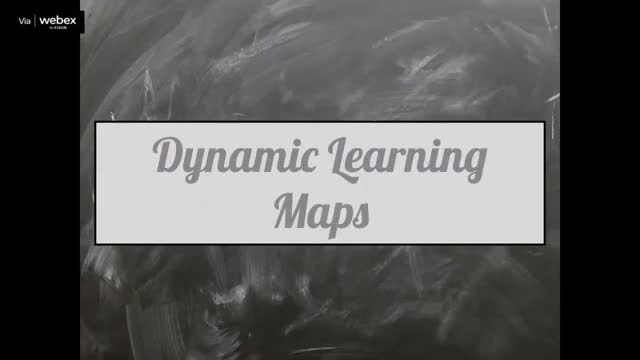District Implements Dynamic Learning Maps for Special Education Assessments
October 07, 2025 | Northern Burlington County Regional School Distric, School Districts, New Jersey
This article was created by AI summarizing key points discussed. AI makes mistakes, so for full details and context, please refer to the video of the full meeting. Please report any errors so we can fix them. Report an error »

The Northern Burlington County Regional School District Board of Education held a work session on October 6, 2025, focusing on the Dynamic Learning Maps (DLM) assessment and various educational initiatives aimed at improving student outcomes.
The DLM is an alternate assessment designed for students with significant disabilities, administered in grades seven, eight, and eleven. It is crucial to note that only 1% of classified students are eligible to take this assessment. Last year, the district had to apply for a waiver due to an increase in the number of special education students. The assessment is conducted over several weeks by classroom teachers and utilizes iPads to facilitate a hands-on testing experience. Results are categorized into four levels: emerging, approaching the target, at target, and advanced. The majority of students in the district are performing at or above the target level, particularly in English Language Arts (ELA).
In addition to discussing the DLM, the meeting highlighted ongoing efforts to enhance educational support through various interventions. The district is in its second year of a schedule change that emphasizes intervention strategies in middle school. A new grade 7 screener will be introduced to establish baseline skills for early intervention. The district is also expanding its reading intervention programs, training additional staff in specialized methods to assist students with Individualized Education Programs (IEPs).
The meeting also touched on upcoming assessments, including the New Jersey Graduation Proficiency Assessment (NJ GPA) for twelfth graders who are not graduation-ready, and the PSAT for grades 10 and 11. The district is preparing for adaptive field tests that will be implemented in the spring, marking a significant shift in assessment strategy.
Board members expressed interest in comparing Advanced Placement (AP) scores, noting that 88% of students scored a 3 or higher on AP exams. This statistic highlights the effectiveness of the district's curriculum and teaching methods in preparing students for college-level work.
Overall, the meeting underscored the district's commitment to addressing the diverse needs of its students through tailored assessments and targeted interventions, while also recognizing the importance of teacher support in achieving academic success. Further discussions on assessment comparisons and strategic planning are anticipated in future meetings.
The DLM is an alternate assessment designed for students with significant disabilities, administered in grades seven, eight, and eleven. It is crucial to note that only 1% of classified students are eligible to take this assessment. Last year, the district had to apply for a waiver due to an increase in the number of special education students. The assessment is conducted over several weeks by classroom teachers and utilizes iPads to facilitate a hands-on testing experience. Results are categorized into four levels: emerging, approaching the target, at target, and advanced. The majority of students in the district are performing at or above the target level, particularly in English Language Arts (ELA).
In addition to discussing the DLM, the meeting highlighted ongoing efforts to enhance educational support through various interventions. The district is in its second year of a schedule change that emphasizes intervention strategies in middle school. A new grade 7 screener will be introduced to establish baseline skills for early intervention. The district is also expanding its reading intervention programs, training additional staff in specialized methods to assist students with Individualized Education Programs (IEPs).
The meeting also touched on upcoming assessments, including the New Jersey Graduation Proficiency Assessment (NJ GPA) for twelfth graders who are not graduation-ready, and the PSAT for grades 10 and 11. The district is preparing for adaptive field tests that will be implemented in the spring, marking a significant shift in assessment strategy.
Board members expressed interest in comparing Advanced Placement (AP) scores, noting that 88% of students scored a 3 or higher on AP exams. This statistic highlights the effectiveness of the district's curriculum and teaching methods in preparing students for college-level work.
Overall, the meeting underscored the district's commitment to addressing the diverse needs of its students through tailored assessments and targeted interventions, while also recognizing the importance of teacher support in achieving academic success. Further discussions on assessment comparisons and strategic planning are anticipated in future meetings.
View full meeting
This article is based on a recent meeting—watch the full video and explore the complete transcript for deeper insights into the discussion.
View full meeting
